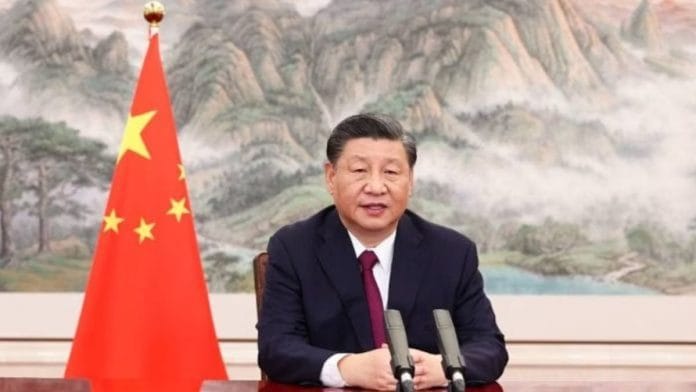The recent annual Central Economic Work Conference laid bare China’s fiscal and monetary plans for 2025. The meeting, held between 11-12 December, is particularly significant as next year marks the conclusion of Beijing’s 14th Five-Year Plan, its ambitious development strategy for 2021-2025. The meeting was rather optimistic, mirroring general national sentiment by conveying great confidence in China’s economic trajectory.
The conference placed a strong emphasis on sustaining China’s economic growth by boosting domestic demand, and implementing targeted reforms for the same.
Apart from domestic consumption, eight big strategic goals were outlined: Driving technological progress and modern industries; implementing economic reforms; enhancing global engagement; fostering urban-rural development; supporting regional growth; mitigating financial and systemic risks; advancing sustainability efforts through a green transition, and promoting social stability while addressing income inequality.
Domestic consumption is key
Li Xunlei, Chief Economist at Zhongtai International Finance Co., pointed out the CEWC’s prioritisation of domestic consumption marks a departure from the Chinese government’s earlier emphasis on science-driven innovation and initiatives. Liu Yuanchun, President of the Shanghai University of Finance and Economics, highlighted the need for an integrated development strategy aimed at alleviating financial pressures on low and middle-income groups for boosting consumer spending.
Despite these efforts, creating domestic demand remains a challenge for China. Li Chengjian, director of the Macroeconomic Research Department at the Development Research Center of the State Council, and Liu Zhibiao, executive director at Nanjing University’s Yangtze River Industrial Development Research Institute, emphasised the importance of raising residents’ incomes to drive higher consumption. Dong Yu, executive vice president of the China Development Planning Research Institute at Tsinghua University, stressed that a weak consumption market inevitably translates into sluggish economic progress.
Also read: Xi’s anti-corruption sweep is bringing instability to the Chinese system
A buffer against global uncertainties
China’s focus on domestic consumption also aligns with global trends where nations are seeking to reduce their dependence on the country. With Donald Trump returning to power in the United States, trade tensions could escalate, and global uncertainties might dampen demand for Chinese exports. Wu Xinbo, Director of the Center for American Studies at Fudan University, anticipates a deepening rivalry with the US. This, according to him, makes a robust domestic market crucial for China because it’ll act as a buffer against external shocks and mitigate trade and geopolitical risks.
This shift is particularly significant as China remains a net exporter, with export volumes increasing by 13 per cent year-over-year and import volumes seeing a mere 2 per cent increase. By transitioning from an export-driven model to a consumption-led one, China aims to reduce reliance on global markets. The expanding urban middle class, with greater purchasing power, is well-positioned to drive demand for goods and services, ensuring sustained economic growth and greater self-reliance.
Also read: What China is fearing now—being sidelined by North Korea-Russia alliance
What academics say
Jin Li, the Vice President of the Southern University of Science and Technology, stressed the need to deeply understand economic trends and conduct scientific analyses of these patterns. He highlighted that well-designed policies could galvanise public confidence and collective action, driving high-quality development.
A researcher from the Chinese Academy of Fiscal Sciences pointed out that, in light of the anticipated complexities in both domestic and global markets in 2025, macroeconomic policies would adopt a more proactive stance. This approach aims to boost development confidence, stabilise market expectations, and tackle challenges directly. Such initiatives are crucial to achieving the goals outlined in the 14th Five-Year Plan, and lay a robust foundation for the 15th Five-Year Plan.
Platforms like Weibo signify the Chinese public’s growing support for expanding domestic consumption that’ll fortify their nation’s economy. This strategy, according to many users, seeks to build resilience and maintain economic stability in the face of pressures from US trade policies and Trump-era tariffs.
Despite the clear roadmap, China still faces significant challenges. Many Chinese economists and analysts agree that, while the direction is well set, achieving these objectives will require effective policy execution. Success in this endeavour will not only reshape China’s domestic economic landscape but also determine its influence and role as a leading global economic force.
Sana Hashmi is fellow at Taiwan Asia Exchange Foundation. She tweets @sanahashmi1. Views are personal.
(Edited by Zoya Bhatti)






